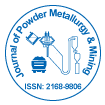Notre groupe organise plus de 3 000 séries de conférences Événements chaque année aux États-Unis, en Europe et en Europe. Asie avec le soutien de 1 000 autres Sociétés scientifiques et publie plus de 700 Open Access Revues qui contiennent plus de 50 000 personnalités éminentes, des scientifiques réputés en tant que membres du comité de rédaction.
Les revues en libre accès gagnent plus de lecteurs et de citations
700 revues et 15 000 000 de lecteurs Chaque revue attire plus de 25 000 lecteurs
Indexé dans
- Indice source CAS (CASSI)
- Index Copernic
- Google Scholar
- Ouvrir la porte J
- JournalSeek de génamique
- Recherche de référence
- Université Hamdard
- EBSCO AZ
- OCLC-WorldCat
- Publons
- Euro Pub
Liens utiles
Revues en libre accès
Partager cette page
Abstrait
A Qualitative Analysis of the Recycling Procedures for Lithium-ion Batteries
Valnzuela J Elgeta
Due to the widespread use of e-mobility, a lot of lithium ion batteries (LIB) end up in the landfill. Strategies for recycling and disposal must be developed and implemented immediately. End of Life (EoL) LIBs urgently require environmentally friendly, safe, and cost-effective disposal options. This study evaluated the recycling and reclamation procedures of 44 commercial recyclers. The "Strategic Materials Weighting And Value Evaluation" (SWAVE) qualitative assessment matrix is proposed and used to compare the strategic importance and value of various EoL LIB materials. By comparing the final form or composition of recycled material following the recycling processes, industrial processes, and industry type (primary sector, manufacturer, or recycler), sustainability and quality are evaluated. SWAVE is applied to each organization, delivering a score out of 20, with a bigger number showing that more materials can be reused. Six well-known recycling companies' separation procedures and resources are further discussed. The majority of recyclers focus on high-value metal extraction rather than closed-loop recycling of the metals or component materials, highlighting an environmental and technological gap. These recyclers use one or more mechanical treatments, pyrometallurgy, or hydrometallurgy. Reuse and repurposing of materials (closedloop recycling) should be considered for further development rather than merely recycling or recovering metals in order to enhance the current circular economy of batteries. It is necessary to conduct additional research on the environmental consequences of recycling or recovering one material over another.
Revues par sujet
- Agriculture et Aquaculture
- Biochimie
- Chimie
- Food & Nutrition
- Génétique et biologie moléculaire
- Géologie et sciences de la Terre
- Immunologie et microbiologie
- Ingénierie
- La science des matériaux
- Le physique
- Science générale
- Sciences cliniques
- Sciences environnementales
- Sciences médicales
- Sciences pharmaceutiques
- Sciences sociales et politiques
- Sciences vétérinaires
- Soins infirmiers et soins de santé
Revues cliniques et médicales
- Allaitement
- Anesthésiologie
- Biologie moléculaire
- Cardiologie
- Chirurgie
- Dentisterie
- Dermatologie
- Diabète et endocrinologie
- Gastro-entérologie
- Immunologie
- La génétique
- Maladies infectieuses
- Médecine
- Microbiologie
- Neurologie
- Oncologie
- Ophtalmologie
- Pédiatrie
- Recherche clinique
- Soins de santé
- Toxicologie

 English
English  Spanish
Spanish  Chinese
Chinese  Russian
Russian  German
German  Japanese
Japanese  Portuguese
Portuguese  Hindi
Hindi